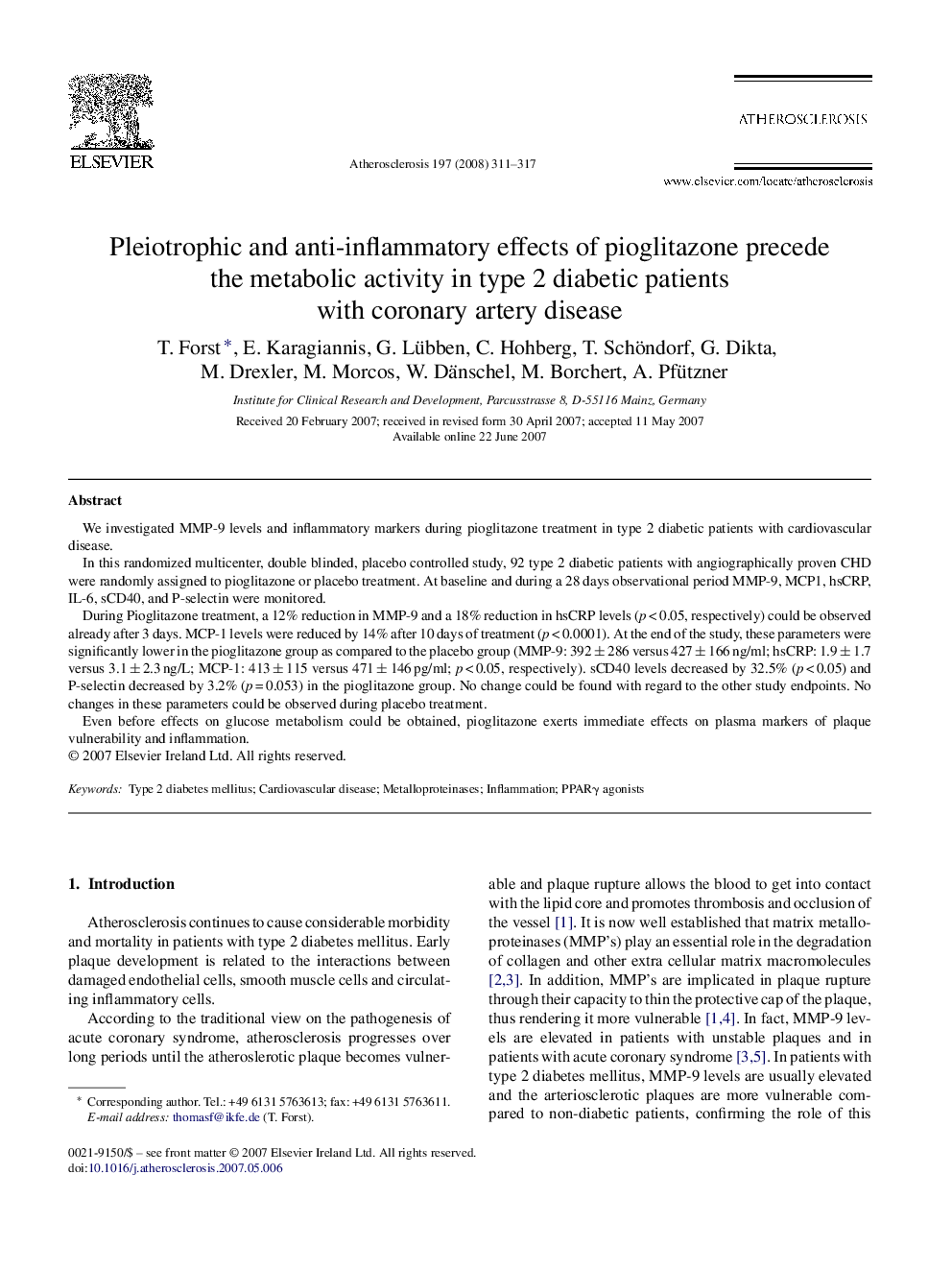| Article ID | Journal | Published Year | Pages | File Type |
|---|---|---|---|---|
| 2894759 | Atherosclerosis | 2008 | 7 Pages |
We investigated MMP-9 levels and inflammatory markers during pioglitazone treatment in type 2 diabetic patients with cardiovascular disease.In this randomized multicenter, double blinded, placebo controlled study, 92 type 2 diabetic patients with angiographically proven CHD were randomly assigned to pioglitazone or placebo treatment. At baseline and during a 28 days observational period MMP-9, MCP1, hsCRP, IL-6, sCD40, and P-selectin were monitored.During Pioglitazone treatment, a 12% reduction in MMP-9 and a 18% reduction in hsCRP levels (p < 0.05, respectively) could be observed already after 3 days. MCP-1 levels were reduced by 14% after 10 days of treatment (p < 0.0001). At the end of the study, these parameters were significantly lower in the pioglitazone group as compared to the placebo group (MMP-9: 392 ± 286 versus 427 ± 166 ng/ml; hsCRP: 1.9 ± 1.7 versus 3.1 ± 2.3 ng/L; MCP-1: 413 ± 115 versus 471 ± 146 pg/ml; p < 0.05, respectively). sCD40 levels decreased by 32.5% (p < 0.05) and P-selectin decreased by 3.2% (p = 0.053) in the pioglitazone group. No change could be found with regard to the other study endpoints. No changes in these parameters could be observed during placebo treatment.Even before effects on glucose metabolism could be obtained, pioglitazone exerts immediate effects on plasma markers of plaque vulnerability and inflammation.
